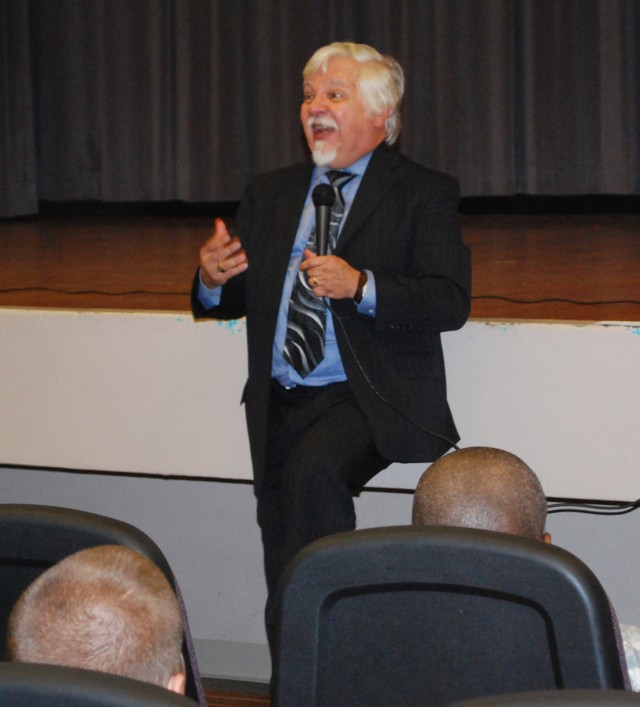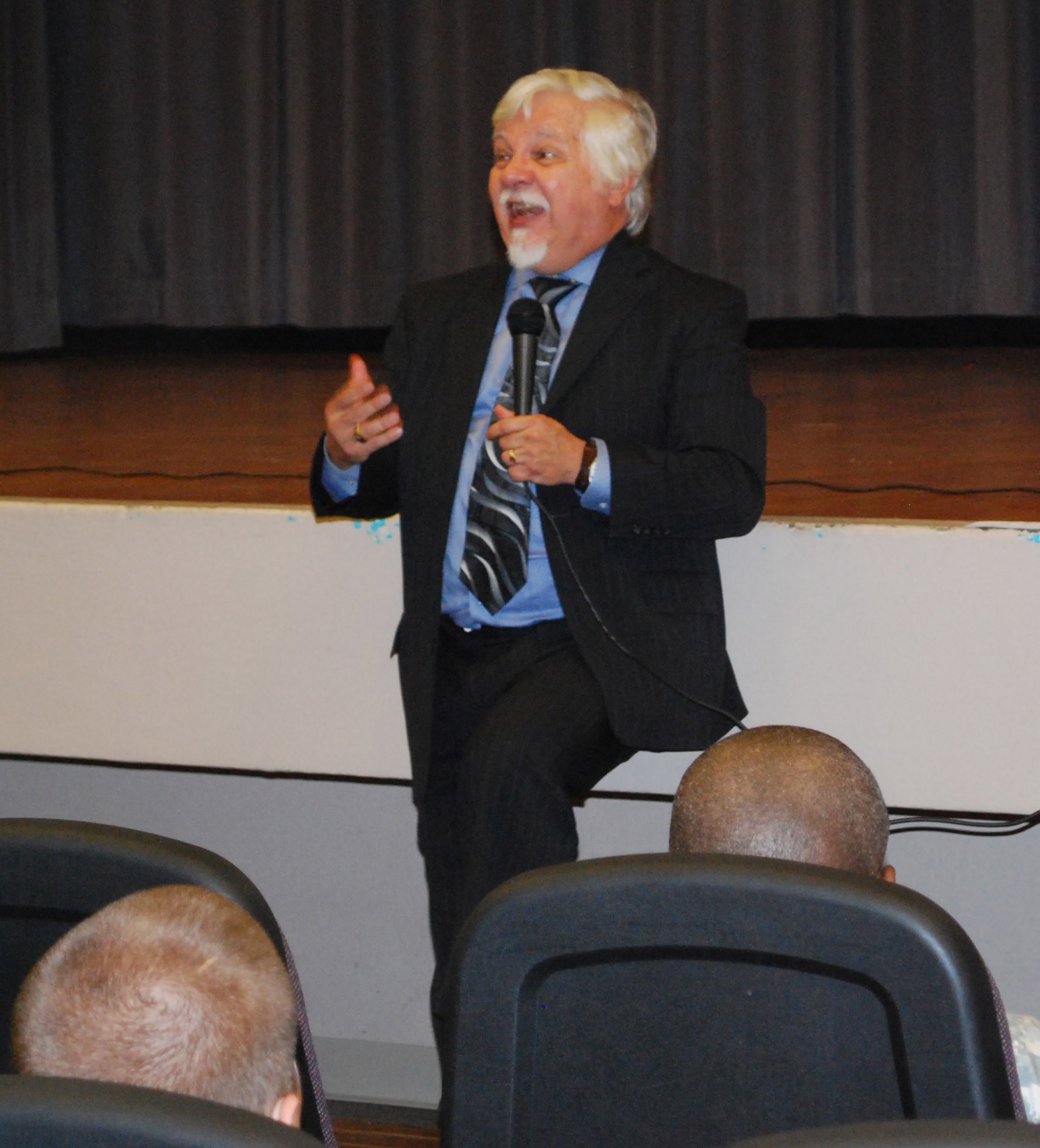FORT RILEY, Kan. - September is Suicide Prevention Month at Fort Riley and Anthony Jurich, Ph.D., professor of Marriage and Family Therapy at Kansas State University, helped kick off the observance activities.
Jurich led suicide prevention classes Sept. 8 at Barlow Theater. He taught three suicide prevention classes throughout the day.
Jurich has been at K-State since 1972. He visited Fort Riley in October that year and has been working with Fort Riley ever since.
"I worked with the guys coming out of Vietnam. Part of my job has always been working with Fort Riley," he said.
Jurich was asked to speak as part of Suicide Prevention Month because he has a national reputation in the subject area.
"As far as marriage and family therapy is considered, I'm the only one who really pushes the idea that marriage and family therapists should be the ones that treat suicide," he said.
He stressed that one of the problems with suicide is that individuals die alone. He wants people to understand the resources available to them, which is why he deals with relationships in terms of preventing suicide.
"If you give me an individual who is suicidal, I can work with them. But if you give me their family, friends...I'm a better therapist. I think it's better for the person," he said.
He also focuses his suicide prevention on the aftermath of the event. He tells the individual considering suicide how it will affect his or her family, friends and unit.
Jurich said suicide "leaves a legacy of self doubt and feelings of guilt and blame, which is really problematic."
These issues of self doubt can be especially harmful for Soldiers in combat situations, Jurich said.
Suicide itself is a big problem in the Army, where suicide rates are higher than those of the Air Force and Navy, Jurich said.
He noted the attitude of the Army is changing in an attempt to de-stigmatize mental health issues, particularly suicide.
Suicide and death are taboo subjects in our culture, according to Jurich. He said there are four truths associated with death: it's inevitable, universal, people are not sure what is on the other said, and people can't control it.
"Death is the punctuation on the end of your life...and unfortunately for people who commit suicide there's always a question mark," he said.
The unknown reason for suicide often leaves friends and family members blaming themselves. The family and friends of the individual often wonder how they could have handled the situation differently, Jurich said.
He recommended people talk to their friends and family members who they think might be suicidal.
"When you're trying to work with someone who's suicidal you have to give them a cause for thinking twice," he said.
He recommends asking the individual if they are considering suicide.
"Don't beat around the bush. Ask. The worst that could happen is that they so no," he said.
If the individual says they are considering suicide, stay calm, listen and ask them why they are feeling that way. Then go with the individual to get help.
For therapy on post, the Family Life Ministries Center is in Building 500, Room 120. For appointments at the Family Life Ministries Center call 785-239-3436. There are two chaplain counselors and two civilian counselor interns available. Jurich is the supervisor for the two chaplain counselors.
In emergency situations the Irwin Army Community Hospital Chaplain can be reached at 785-239-7871.
Jurich said the K-State Family Center is also open to everyone. They work on a sliding fee scale that goes as high as $90 and to as low as $5.
"We will not turn you away for not having the proper financial reimbursements," he said.
And if all else fails, Jurich told those in attendance to call the Family Center, ask for him as "Dr. J," and he would get back to them as soon as possible.


Social Sharing